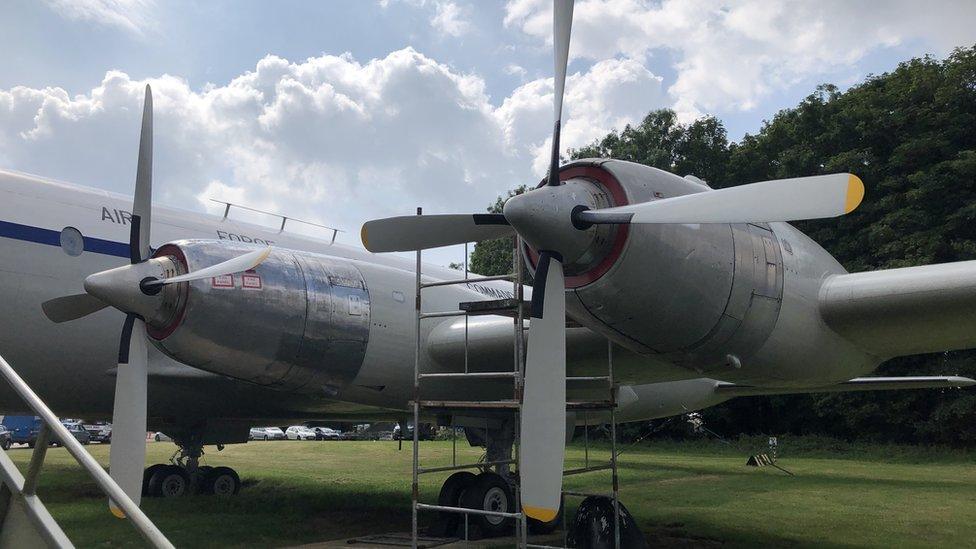Man recalls father's River Severn plane crash escape
- Published
The Bristol plane which landed on the River Severn
A man has recalled his father's "lucky escape" from a plane crash on the banks of the River Severn 70 years ago.
The Bristol Britannia prototype plane was on its way to Wales on 4 February 1954 when one of its engines exploded, forcing the pilot to make an emergency landing.
Bill Morgan said passengers, including his father, noticed fire "streaming" from the engine.
A new Aerospace Bristol exhibition is displaying salvaged parts of the plane.
Mr Morgan said his father Bill Morgan was not usually on the plane but ended up as a passenger because VIP guests from KLM Royal Dutch Airlines were visiting Bristol executives.
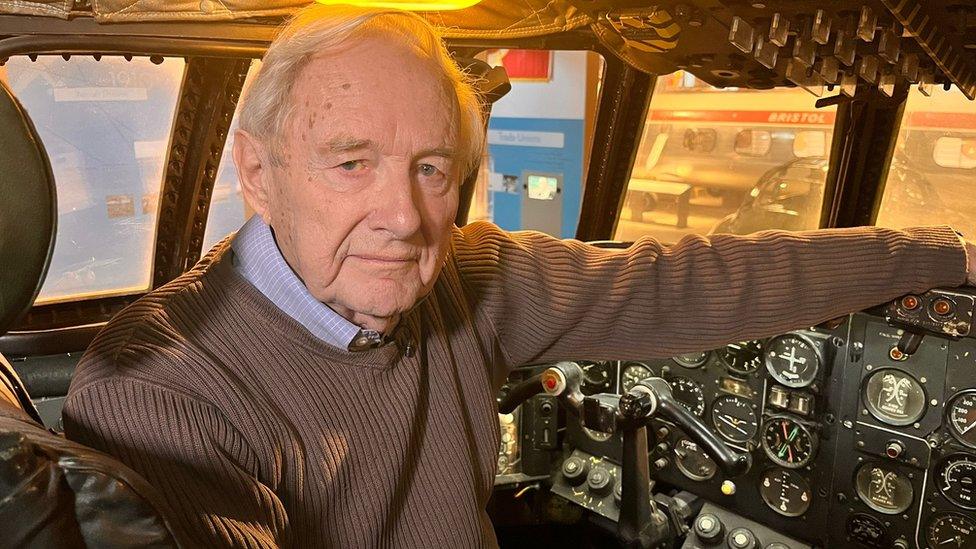
Bill Morgan said his father, also called Bill Morgan, was not usually on the plane
The aircraft was a prototype of a Bristol Type 175 Britannia, the world's first long-range airliner powered by turboprop engines.
Captain Bill Pegg had taken off from Filton Airport for a demonstration flight over Wales when disaster struck.
"It was most unusual for my father to be on board, he was project designer for the airplane," Mr Morgan said, recalling what he had been told about the crash.
He said: "There was a sudden bang and number three engine let go. In fact, the propeller disengaged itself from the engine.
"The engine ran away and went into overspeed, and in going into overspeed the turbine burst at the back of the engine.
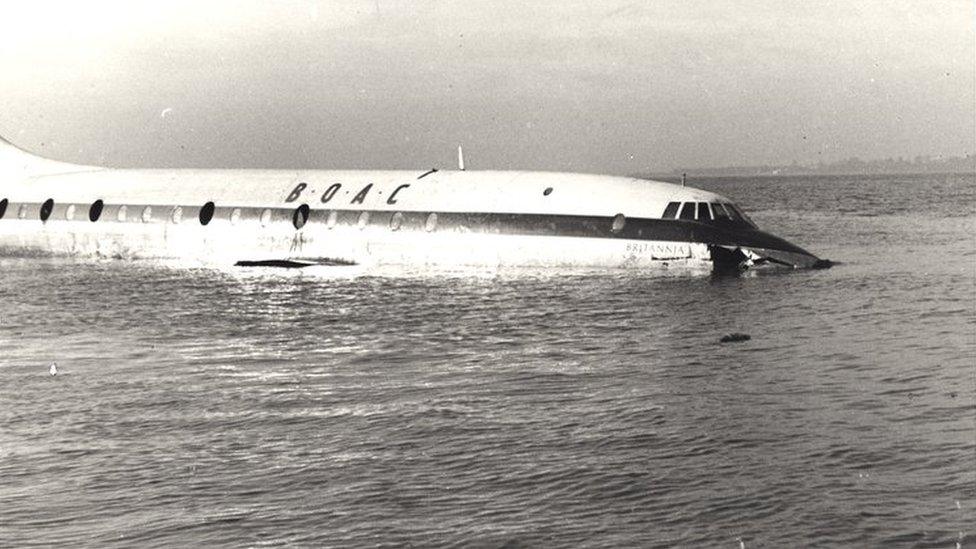
The plane was submerged quickly by the waves on the River Severn
"Hot gas and metal came out, bursting the oil tank which set on fire.
"The passengers noticed the fire streaming from engine three and it was almost touching the tail plane. That would have been a disaster but it never quite got that far."
'Absolute silence'
Distress signals were sent back to Filton Airport when Captain Pegg became worried about the fire's impact on the landing gear as well as the integrity of the wing.
Mr Morgan said: "He decided the best route was to go for an emergency landing in the River Severn on the mud.
"Fortuitously, the tide was more or less out and he crept across the water, at which time two engines which were fully forward suddenly shut down because the fire affected the crash switch.
"The heat activated the crash switch, which is only meant to operate when the plane has crashed - not before, when it's in flight - so the immediate effect was that it cut all the electrics and totally fried the throttle on the two engines that were running.
"They stopped - there was no power on board and absolute silence."
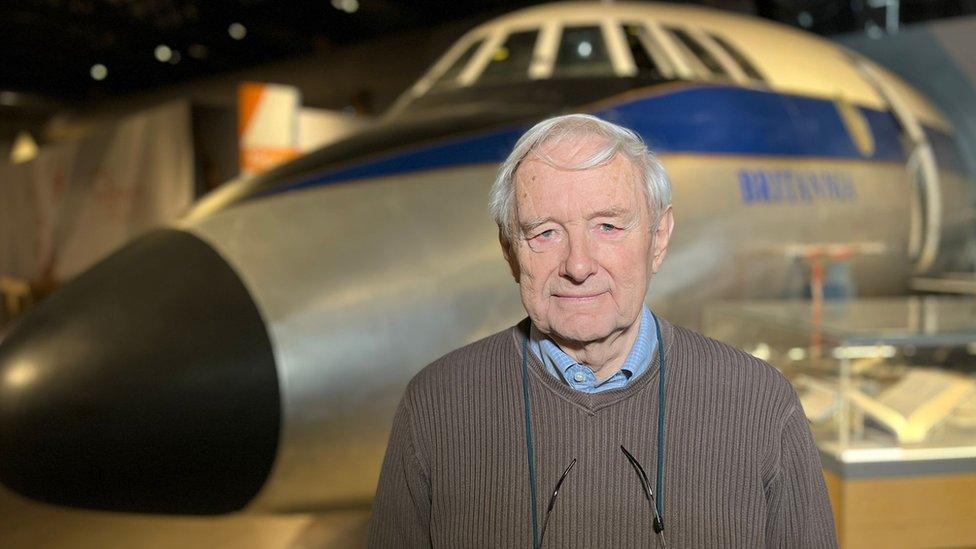
Bill Morgan recalls his father explaining the accident to him as a young man
Thankfully, one of the crew grabbed a lever to reignite the electrics but the plane continued to descend over the water before landing in the mud.
"The terrifying thing for the passengers was that the mud covered the windows in the back so they had no idea if they were in the water, on the water or below it or what," Mr Morgan said.
He added that the group eventually managed to climb onto the wing and ended up covered in mud before returning back to the brickworks for a cup of tea.
"They all got a new suit from the company and went back to work the next day," Mr Morgan said.
The plan for the stranded aircraft was to put flotation bags underneath and float it down to Avonmouth Docks, but the Severn Estuary's fast-moving tide meant it was submerged within a few hours.
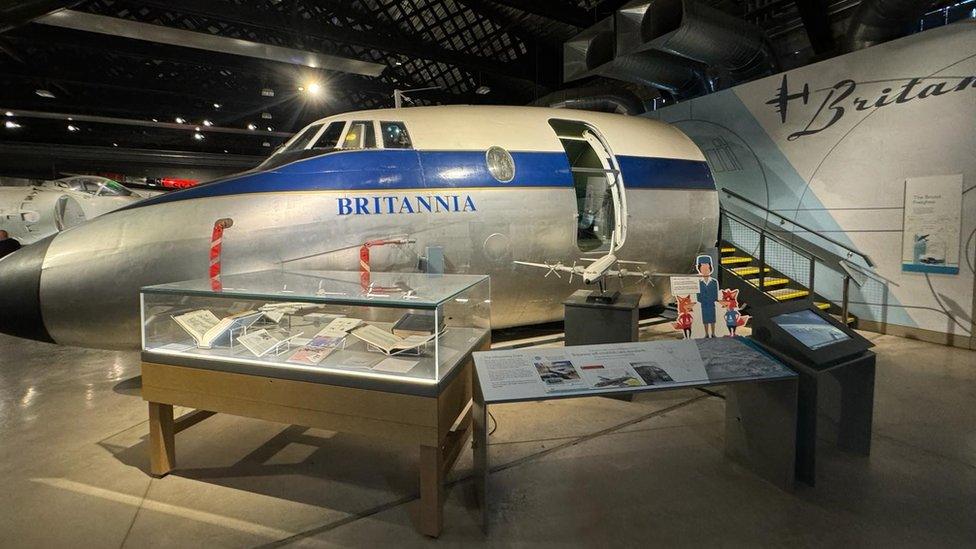
The museum is opening an exhibition telling the story of a failed test flight 70 years ago.
The Britannia prototype was cut up in order to be removed and the nose now resides in Aerospace Bristol's Heritage Hangar.An exhibition showing the plane, known as The Whispering Giant, will be held during February half term at Aerospace Bristol.
Amy Seadon, head of collections, learning and interpretation, said: "The museum explores the aircraft's role in the golden era of flight and visitors will be able to view the Britannia from a different perspective."

Follow BBC West on Facebook, external, X, external and Instagram, external. Send your story ideas to: bristol@bbc.co.uk , external
- Published17 August 2022
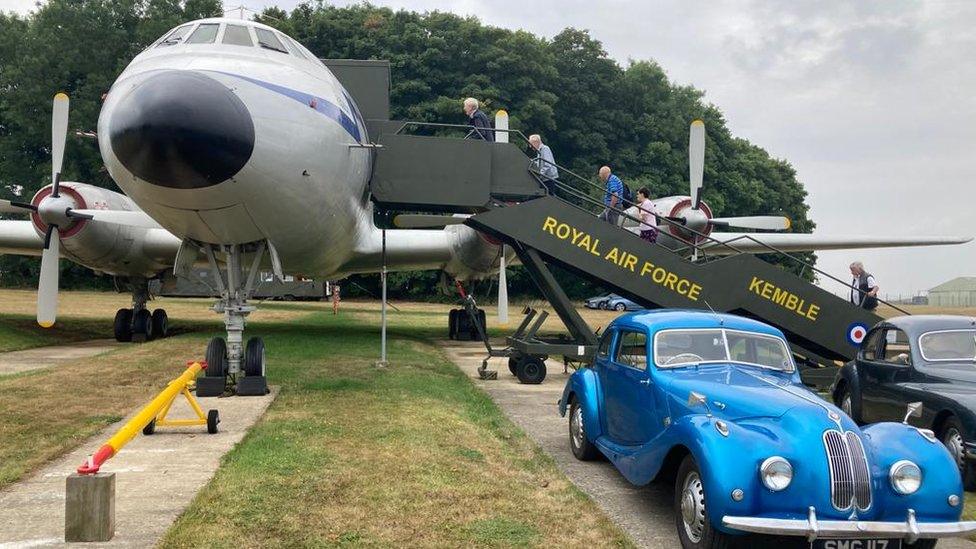
- Published30 January 2024

- Published3 August 2021
